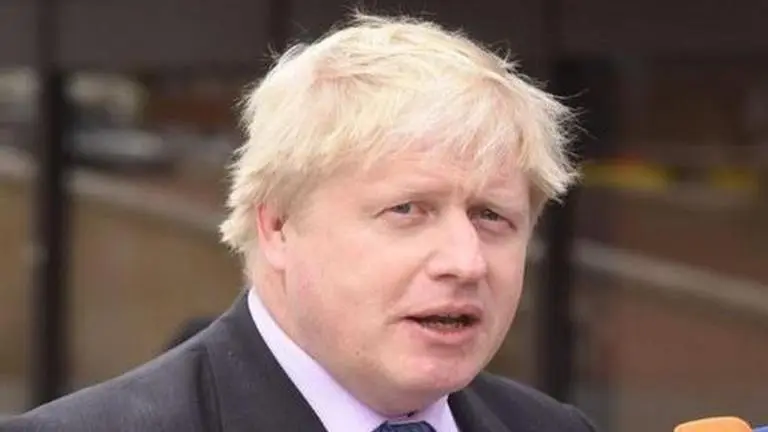Updated 3 March 2020 at 14:59 IST
UK PM Boris Johnson to unveil action plan to battle coronavirus spread
British Prime Minister Boris Johnson is set to unveil a so-called battleplan to contain the spread of coronavirus in the UK, as the number of positive cases rose to 39.
- World News
- 4 min read

British Prime Minister Boris Johnson is set to unveil a so-called battleplan to contain the spread of coronavirus in the UK, as the number of positive cases rose to 39. The new steps will involve possible school closures, cancelling events and bringing staff from the state-funded National Health Service (NHS) out of retirement. Over time, unnecessary travel could also be curbed and people urged to work from home and legislation will be introduced to ensure ministers have the powers to prepare for a widespread outbreak.
“It is highly likely coronavirus will spread more widely in the coming days and weeks, which is why we’re making every possible preparation,” said Johnson in a statement ahead of a press conference at 10 Downing Street to unveil the plan.
“We have agreed a plan, which I will set out in detail today [Tuesday], so if the virus should spread, we are ready to take necessary steps to contain it and protect the most vulnerable. But we can all continue to do our bit to fight this virus – by washing our hands with soap and water for the length of time it takes to sing Happy Birthday twice,” he said.
The plan was agreed at the government's emergency COBRA committee meeting on the coronavirus outbreak on Monday, where health experts and government chiefs discussed, finalised and signed off the “battleplan”.
Advertisement
Later in the week, a major public information campaign will be launched setting out clear steps the public can take to limit the spread of the virus, including washing their hands regularly with soap and water.
A new Bill will be published in the coming weeks to ensure the UK government has all the necessary powers to prepare for and tackle the coronavirus outbreak. Under measures already in place, every UK government department has a designated ministerial virus lead to oversee the response to the global threat of the virus, for instance on schools or businesses.
Advertisement
A war room has been set up in the Cabinet Office, bringing together communications experts and scientists from across government and the NHS to roll out the public information campaign. Coronavirus will also be a standing item on the weekly Cabinet agenda. As the situation unfolds, more home working and discouraging unnecessary travel is planned as part of a “social distancing” strategy that could delay the peak of the outbreak until later in the year, potentially helping combat the virus in warmer weather conditions.
Looking at emergency registration of health professionals who have retired, the introduction of emergency indemnity coverage for healthcare workers to provide care or diagnostic services and relaxation of rules around staff to pupil ratios in education and childcare settings are also underway.
UK Health Secretary Matt Hancock said the government was not currently recommending the cancelling of large events such as the London Marathon or school closures, unless this was advised by Public Health England. However, he said there was a "significant risk" of the virus becoming more widespread, meaning further measures might be necessary.
"There may be things that we have to do down the line that we may not want to, but we will need the powers to do that, hence proposing emergency legislation," he said. Meanwhile, UK’s Indian-origin Chancellor Rishi Sunak has ordered his Treasury officials to work up plans to support the public health response, businesses and the economy in his Budget on March 11.
"We are well prepared for this global threat and, as the wider economic picture becomes clearer, we stand ready to announce further support where needed," he said.
The spread of the virus and deaths from the resulting disease COVID-19 have been on the rise around the world, with four new UK cases announced on Monday, all of whom had travelled to Italy – which has seen the largest outbreak in Europe. The latest cases came as the European Union (EU) raised the coronavirus risk level in member states to "moderate to high".
The UK's Department of Health said a total of 13,525 people had been tested in the UK, of which 13,485 were negative. Globally, about 86,000 people have been infected, with cases in more than 50 countries. More than 3,000 people have died – the vast majority in China's Hubei province, where the outbreak originated in December.
According to the World Health Organisation (WHO), signs of infection include respiratory symptoms, fever, cough, shortness of breath and breathing difficulties. In more severe cases, it can lead to pneumonia, severe acute respiratory syndrome, kidney failure and even death.
Published By : Press Trust Of India
Published On: 3 March 2020 at 14:59 IST
